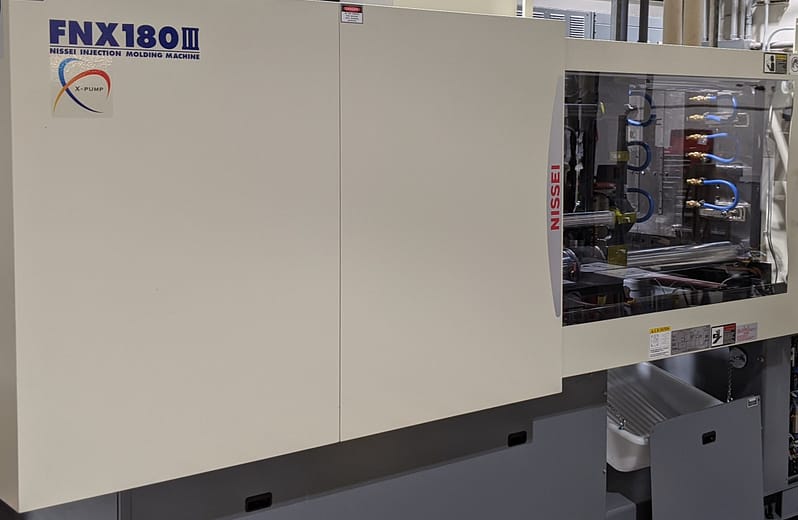Artemis Plastics has recently added a new 197-TON injection molding press to their manufacturing floor. This new press is a great addition to their current line-up of presses under 400 tons. It’s well suited for creating small, intricate parts. The 197-ton press has improved Artemis Plastics’ ability to meet production needs. And it is now available to serve our partners in the medical and industrial sectors. The new press can deliver as little as 40-tons of clamping force and can reach a maximum force of 197-tons.
Specs of the new 197-Ton press
– Shot size – 14.8 oz
– Tie bar space – 22” x 22”
– Platen size – 31.5” x 31.5”
– Max daylight – 37.4”
– Mold thickness (minimum) – 9.8”
– Clamping force – 197-ton
In addition, Artemis Plastics enjoys an impressive line up of 14 plastic injection molding presses. The presses range from 17 tons to 1200 tons and are available for contract manufacturing. All production takes place in their facility in Ocala, Florida. Artemis Plastics’ dedicated teams are more than capable of managing all types of projects from ideation to production. Artemis Plastics can ship anywhere in the United States and internationally.
About Artemis Plastics
Artemis Plastics is a company that manufactures plastic parts. It uses a process known as plastic injection to deliver quality molded products. This award winner is a one stop shop for all your needs. One of its core values is to deliver great quality products to its customers.
You can learn more about Artemis Plastics here.











